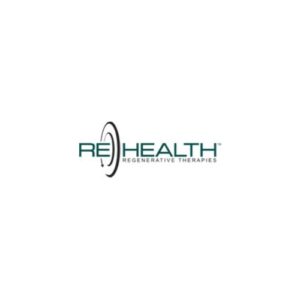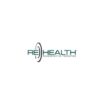Lung health is one of the most vital aspects of overall well-being, yet it is often overlooked until a problem arises. Every breath you take fuels your body with oxygen and removes carbon dioxide, keeping your organs functioning efficiently. Maintaining healthy lungs not only supports your energy levels but also enhances your immune system, heart function, and quality of life. Through advances in regenerative medicine, clinics like are helping people restore lung function naturally and effectively. The Importance of Lung Health Your lungs work tirelessly—about 20,000 breaths a day—to keep your body supplied with oxygen. This oxygen is essential for brain function, muscle performance, and cellular energy production. However, constant exposure to air pollution, cigarette smoke, dust, and allergens can gradually weaken lung tissue, leading to chronic respiratory conditions. Protecting your lungs early is essential to avoid diseases like asthma, chronic bronchitis, emphysema, and chronic obstructive pulmonary disease (COPD). Lung health also plays a key role in your body’s ability to recover from illnesses. A strong respiratory system can help you fight off viral infections more effectively and minimize complications that might arise from colds or the flu. For those recovering from lung infections or respiratory inflammation, proper care and medical guidance can accelerate healing and improve long-term resilience. Common Threats to Lung Health Air quality is a major factor that determines the condition of your lungs. Exposure to pollutants such as vehicle emissions, industrial smoke, and even household chemicals can cause irritation and inflammation. Smoking remains the biggest threat to lung health worldwide, damaging the delicate alveoli where oxygen exchange occurs. Over time, these harmful substances lead to reduced lung capacity, difficulty breathing, and in severe cases, respiratory failure. Occupational hazards also contribute to lung damage. People working in industries such as mining, construction, or manufacturing often breathe in dust, chemicals, or fumes that can scar lung tissue. Even prolonged exposure to mold or pet dander indoors can trigger chronic respiratory problems. Preventive measures—such as wearing protective masks, improving ventilation, and maintaining air filters—can significantly reduce risk. Strengthening and Protecting Lung Function Improving lung health starts with lifestyle choices. Regular exercise, especially aerobic activities like walking, swimming, or cycling, strengthens the muscles used in breathing and enhances oxygen utilization. Deep breathing exercises also help expand lung capacity and clear trapped air or mucus from the airways. A balanced diet rich in antioxidants supports lung tissue repair and reduces inflammation. Foods like berries, apples, leafy greens, garlic, and turmeric contain compounds that help neutralize harmful free radicals. Staying hydrated keeps the mucus in your airways thin, allowing your lungs to function efficiently. Avoiding smoking and secondhand smoke exposure remains the single most powerful step toward maintaining healthy lungs. Modern Advances in Lung Health Regenerative medicine has introduced new possibilities for restoring and protecting lung function. therapies based on mesenchymal stem cells and growth factors are designed to promote natural tissue regeneration and reduce inflammation. These innovative treatments target the underlying damage within the lungs, supporting recovery in conditions such as COPD, pulmonary fibrosis, and asthma. Stem cell therapy offers a unique approach by enhancing the body’s ability to repair damaged tissues. It may help improve oxygen absorption, reduce scar tissue, and strengthen the immune system’s response to respiratory challenges. For patients seeking alternatives to traditional medications or invasive procedures, regenerative therapy provides hope for long-term improvement and better quality of life. Breathing Better for Life Beyond medical intervention, simple daily habits can go a long way in protecting lung health. Spending time in green spaces, maintaining good indoor air quality, and avoiding strong chemical fumes all contribute to cleaner breathing. Practicing mindfulness breathing techniques, yoga, or meditation not only calms the mind but also strengthens lung function. Early detection is equally important. Regular health checkups and lung function tests can identify potential problems before they become serious. Persistent cough, shortness of breath, or chest discomfort should never be ignored. Seeking timely medical advice ensures proper diagnosis and effective treatment. Conclusion Lung health is fundamental to a long, energetic, and fulfilling life. By making informed choices, embracing preventive care, and exploring innovative treatments available through trusted healthcare providers like individuals can safeguard their respiratory system and enhance overall vitality. Every breath counts—protect it with awareness, care, and commitment to lifelong well-being.

